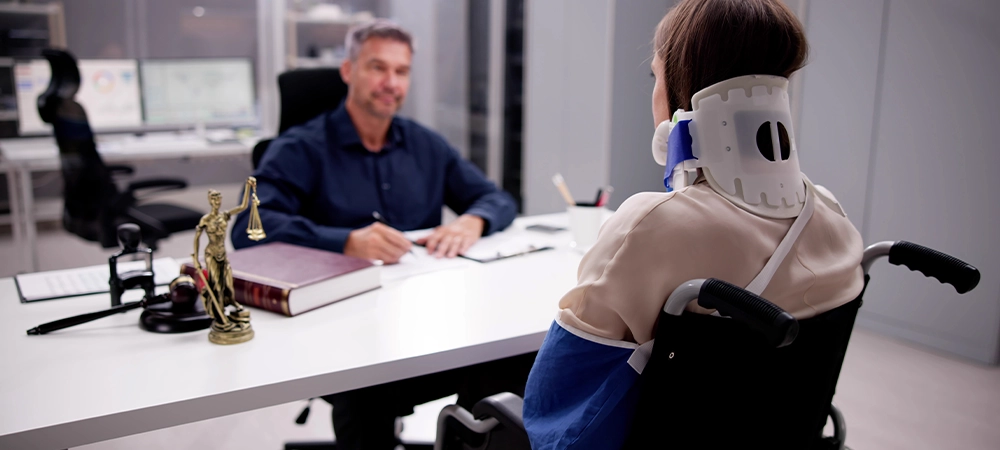Insurance is always there to provide you with protection from unforeseen events that could cause you financial instability. Disability insurance is one such policy which acts as a safety net should you be unable to work. I will allow you to maintain your quality of life and pay your bills.
Disability comes in two primary forms: short-term and long-term. They have distinct purposes, and you may be wondering if you need one or both. Let’s take a look at whether you need this type of insurance and if it’s right for your personal circumstances.
Understanding Short-Term Disability Insurance
Short-term disability insurance is there to replace a portion of your income if you are temporarily able to work. This policy will provide coverage for only a limited amount of time with no assurances of future income if you’re still unable to work.
The duration of the policy can be as little as a few weeks, but it can stretch up to six months. The benefits usually start shortly after the onset of the disability and allow you to have some breathing space while you get treatment or consider your future options.
Short-term disability plans are usually provided via a group plan by your employer. Many insurers don’t offer this plan to individuals, and therefore, you may need to work with a broker to find an insurer that does offer this type of policy.
The Role of Long-Term Disability Insurance
Long-term disability insurance will protect you from either prolonged or permanent disabilities. You’ll generally be covered for both disabilities that prevent you from working for an extended period, as well as those that will affect you for the rest of your life.
Unlike short-term disability which usually lasts for a few months, long-term disability usually lasts for several years, depending on the terms of the policy. For many people, they can get these benefits until retirement age.
This type of cover can be essential as it provides you with a huge amount of financial security. It is particularly effective for those who have high earning potential or if you have significant financial obligations such as dependents, debts, or a mortgage.
When To Consider Short-Term and Long-Term Disability Coverage?
Now we know what they are, should you get one of these policies or both? Here we’ll take a closer look to see how these policies can fit in with your personal and financial circumstances.
Comprehensive Protection – It can take a while for long-term disability insurance to start. Short-term coverage can address your immediate financial needs before either recovering or making a claim for longer-term support. Having both types allows you to have a comprehensive safety net.
Smooth Transition – It’s possible that a short-term disability can evolve into a longer-term issue if the condition either persists or worsens. If this happens, having both types of coverage will give you a seamless transition without any gaps in support.
Employer Limitations – Your employer may only offer one or none of these policies. Not only that, but they may only provide limited benefits. Arranging your own insurance can help to get the coverage you need without being solely reliant on your employer.
Peace of Mind – Becoming disabled from work can be a double blow. Not only do you have a serious health condition, but you now need to worry about the financial implications. Having both types of coverage allows you to focus on recovery or treatment without worrying about finances.
When You Don’t Need Short or Long-Term Disability Insurance
We’ve looked at the benefits of short and long-term disability insurance but that doesn’t mean it’s right for everyone. Here we look at some instances where this coverage may not be the best idea for you.
Sufficient Emergency Savings – If you have a substantial amount of savings, then you may feel comfortable relying on them should you not be able to work. However, you need to assess whether they are truly adequate for a significant loss of long-term income.
Robust Employer Benefits – Some employers offer great disability benefits as part of their benefits package. It could be that these are good enough that you don’t need to get your own policy. It’s important to review these benefits to ensure you’re getting the coverage you want.
Alternative Sources of Income – It could be that you have alternative sources of income you can rely on should you be unable to maintain your main income. This includes the income of your partner, rental income, or investments. Make sure this is enough to cover your essential expenses.
Minimal Financial Obligations – For those with minimal financial obligations such as no dependents or a mortgage, you aren’t as vulnerable to losing your income. It’s important to consider whether or not you can still enjoy your quality of life if you lose your income, even with fewer obligations.
Early Retirement Plans – If you’re close to retirement and already have a financial plan in place, then you may be well set up for an early retirement. If you can still support your lifestyle without employment income, you may not need disability coverage.
Final Thoughts
Both short-term and long-term disability insurance can be essential parts of a great financial plan. They will offer you vital protection against unexpected disabilities, and they can work together to offer you seamless financial support.
As we’ve seen, they may not be required for everyone, and you should check what benefits you get through your workplace. However, if you’re interested in a disability insurance plan, then contact Buckler Insurance right away. We’ll happily look at your circumstances and find the perfect plan for you.






